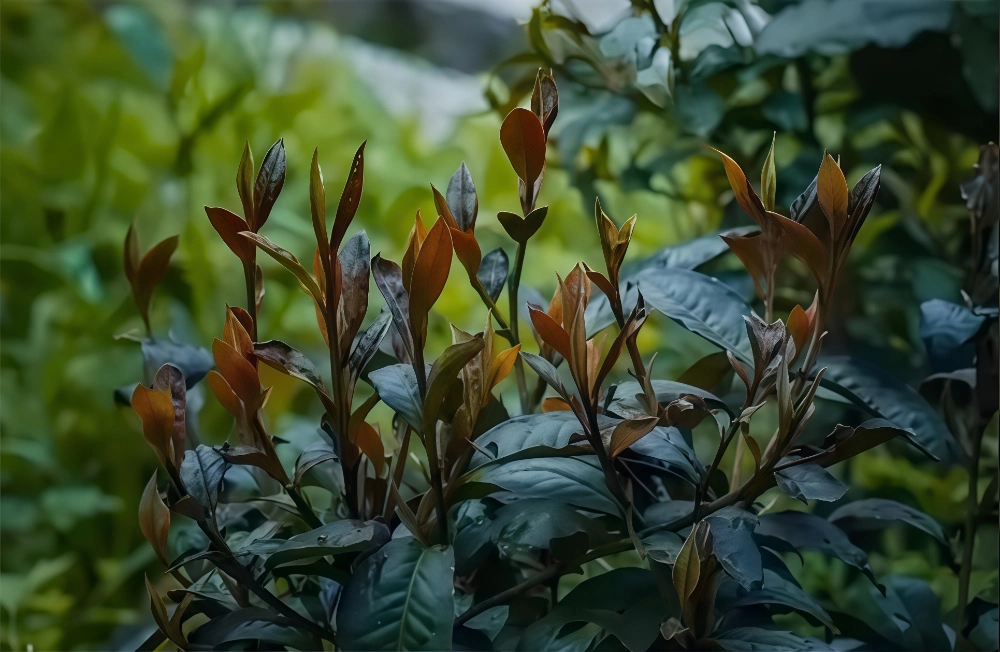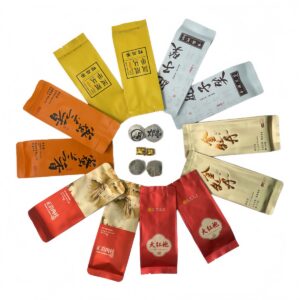Black tea isn’t just a comforting hug in a mug—it’s a tantalizing journey of flavor, energy, and wellness. Dive into this captivating exploration of caffeine in black tea, and discover how black teas and black tea leaves can transform your daily ritual into a revitalizing experience.

1. Introduction
Imagine the warm, amber glow of a freshly steeped cup; feel the soothing aroma waft through your senses, promising calm focus and gentle energy. In this article, we’ll unlock the mysteries of caffeine in black tea, explore its enchanting health perks, and reveal the secrets of those storied black tea leaves. Prepare to be inspired!
2. What Is Caffeine?
Caffeine is nature’s most beloved stimulant—a molecular spark that awakens your mind and ignites a sense of alert clarity. Found naturally in tea, coffee, and certain plants, caffeine acts on your central nervous system to boost mood, enhance focus, and ignite that zest for life. In tea, caffeine is nestled within delicate leaves, ready to be released with each sensuous sip.
3. Caffeine Content in Black Tea
3.1 Caffeine in Black Tea Leaves
When you cradle an 8-ounce cup of black tea, you’re holding anywhere from 40 to 90 milligrams of pure vivacity. Why such a range? It all comes down to the origin and processing of black tea leaves. Let’s spotlight three celebrated Chinese black teas:
- Lapsang Souchong (正山小种): 70–90 mg per cup
- Yunnan Dianhong (云南滇红): 50–70 mg per cup
- Keemun Qimen Hongcha (祁门红茶): 40–60 mg per cup
Each cultivar delivers its own powerful wave of energy: from the smoky, commanding embrace of Lapsang Souchong to the silky, refined lift of Keemun.
3.2 How Brewing Time & Temperature Affect Caffeine
Your brewing ritual is a secret control panel for caffeine extraction. A brisk steep at 175°F (80°C) for 2 minutes teases out a gentle whisper of caffeine, while a fervent boil at 212°F (100°C) for 5 minutes unleashes its full power.
- Short, cool steep (2 min / 175°F): ~40% caffeine
- Standard steep (3–4 min / 200°F): ~70% caffeine
- Extended, hot steep (5+ min / 212°F): ~100% caffeine
Want a velvety, low-caffeine delight? Opt for a brisk infusion. Craving an invigorating buzz? Embrace the bold heat and time.
4. Comparing Black Teas with Other Teas & Coffee
4.1 Compared to Green & White Teas
Not all teas are created equal. Green tea whispers with 20–45 mg per cup, while white tea offers a delicate 15–30 mg. Black teas dominate the stage with their rich, full-bodied profile and caffeine content that tantalizes the senses.
| Tea Type | Caffeine per 8 oz cup |
|---|---|
| White Tea | 15–30 mg |
| Green Tea | 20–45 mg |
| Oolong Tea | 30–50 mg |
| Black Teas | 40–90 mg |
4.2 Caffeine Comparison with Coffee
Coffee lovers, take note: your standard cup of drip coffee (8 oz) pounds in at 95–165 mg of caffeine, often leading to jittery highs and crashing lows. By contrast, caffeine in black tea delivers a smoother, more balanced uplift—courtesy of L-theanine, the calming amino acid that whispers serenity into your system.
- Drip coffee: 95–165 mg
- Espresso (1 oz shot): 63 mg
- Black teas: 40–90 mg
Choose black tea and savor a gentle, enduring glow of clarity.
5. Health Effects of Caffeine in Black Tea
5.1 Benefits: Boosts Energy & Focus
Indulging in black teas is like pressing a reset button on fatigue. The dynamic duo of caffeine and L-theanine creates a symphony of mental alertness, elevating mood and sharpening concentration without the nervous edge. Studies suggest regular, moderate consumption may support heart health, enhance metabolism, and even fortify immune defenses—gifting you strength and resilience.
5.2 Risks & Side Effects
Yet, even the most enchanting elixirs demand respect. Overindulgence can usher in anxiety, sleepless nights, or a racing heart. For most adults, a safe daily limit hovers around 300 mg of caffeine—equivalent to three robust cups of black tea. If you notice jitters or discomfort, dial back the steeping time or switch to a decaffeinated option.
6. How to Adjust Caffeine Intake from Black Teas
6.1 Choosing Low-Caffeine Black Teas
The market brims with decaf black teas—sublime, mellow, and retaining that classic malty allure. Alternatively, seek out naturally low-caffeine cultivars, such as Keemun Qimen Hongcha or early-harvest white teas that skirt the lighter end of the scale.
6.2 Controlling Brewing Methods
Master your brew and command your caffeine:
- Leaf Amount: Use 1 teaspoon per 8 oz for light energy; 2 teaspoons for a robust punch.
- Water Temperature: 175–185°F (80–85°C) for gentler extraction; 205–212°F (96–100°C) for full vigor.
- Infusion Time: 2 minutes for a soft caress of caffeine; 5 minutes for a commanding embrace.
Craving novelty? Cold brew black tea leaves overnight in cold water. This slow, silky process delivers half the caffeine with double the smoothness—an irresistible summer delight.
7. FAQs
Q1: Does black tea contain caffeine?
Yes—between 40 and 90 mg per 8-ounce cup, depending on leaf type and brewing method.
Q2: How do I reduce caffeine in black tea?
Shorten steep time, lower the water temperature, or choose decaffeinated/low-caffeine blends.
Q3: How many cups of black tea are safe per day?
Most adults can enjoy up to four cups (about 300–360 mg caffeine) without adverse effects.
8. Conclusion & Final Thoughts
Whether you seek a gentle nudge of morning energy or a soothing afternoon ritual, understanding caffeine in black tea unlocks endless possibilities. Embrace the artistry of brewing, savor the sensory symphony, and let black teas become your daily companion on the path to radiant focus and well-being. Cheers to your next captivating cup!



